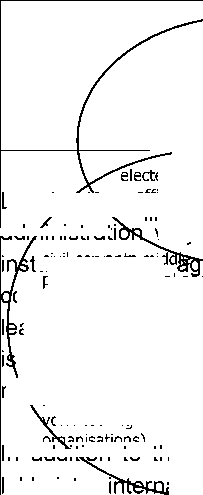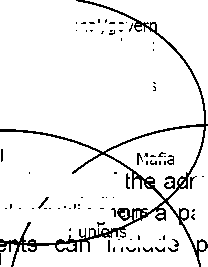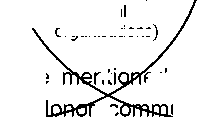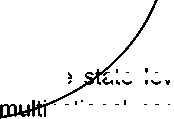support to a particular state. Ussualy the only condition they are asking for are
approvements that the reform process is in place or ongoing that will eventually lead to
“good governance”.
The concept of good governance is not new one. It is as old as human civilization. To
put it simply, good governance as a concept includes decision-making and
implementation (or non-implementation) processes. Thereby, the word good
governance can be used in many different contexts, such as corporate administration,
international administration, public administration and local administration.
Since governance comprises both the decision-making process and its implementation,
the analysis of governance is focused on formal and informal agents of decision-making
and implementation, as well as on formal and informal structures appointed to make
and implement decisions.
Figure 1: Urban agents
stakeholders within re¢0 ge gU⅝t%pjt0CtfVated≡αnd(given I⅛Ce<⅛beE0meθven basic attributes: it
enables individual participation, rule of law, prompt response, consensus orientation,
impartiality and comprehensiveness, efficiency and competence and responsibility. It
makes sure that corruption is reduced to the minimum, views of minorities are respected

ational d.
national/regional/gov
mental decision makers;
appointed local decision
makers; formal business
decision makers
lobbyists, i
Urban elite:

Mafia
a
me ude
ea
LocaIzSelK^ofedaOient ιs^6'∣m2l[ t
vary dejx⅛ntr⅛R∣gn
adn4inistrati
shapes a town, formally and informally
well organised

ministration age . Other agents participating in
articular administration level. In rural areas, for

t<cιvtservantsmd .
possition; national and s.............
oopocasducatfonaiion-gdvernnNGotcBOorganlsatioofffciaiNowOs), research institutes, r
adiêst^Utionsandi experts; tutiohCommurti⅛yal parties, thleVelrmy, etc. τhe situation in urba
employed in the private! Based r I ’ possitions; r, J
fsattomcs® (complex. Orga⅛za‰ns) =≡hdws employed a(ion among the agents
m∖jraetyrorggSsatio∣∣⅛∣n⅛tratiortocial ^ thes“
ʌ pvo(Pm'at≡ ∖ organisations) sector;
olunteering women
rosday-lab°uιref⅛τners∖ agricultural assoc
. government

ciations,
eligious
n areas
of the
In addition to the above

ntι
c
êd agents, at the
unities,

ate level there are also
iħational corporations, etc. Th
sometimes play an important part in decision-making or affect the decision-
Urban middle class: The urban poor:
pro ces uninformed
media,
ey can
making
uninterested
unorganised
_
for the government and the army, are jointly
All agents, s

society”. Good administration requires that institutions


suffers most
exploited
slowly
ped as a part
processes try and s
of “civil
erve all
More intriguing information
1. TINKERING WITH VALUATION ESTIMATES: IS THERE A FUTURE FOR WILLINGNESS TO ACCEPT MEASURES?2. The name is absent
3. Direct observations of the kinetics of migrating T-cells suggest active retention by endothelial cells with continual bidirectional migration
4. A Classical Probabilistic Computer Model of Consciousness
5. Name Strategy: Its Existence and Implications
6. The name is absent
7. Tastes, castes, and culture: The influence of society on preferences
8. The Economics of Uncovered Interest Parity Condition for Emerging Markets: A Survey
9. Constructing the Phylomemetic Tree Case of Study: Indonesian Tradition-Inspired Buildings
10. How does an infant acquire the ability of joint attention?: A Constructive Approach